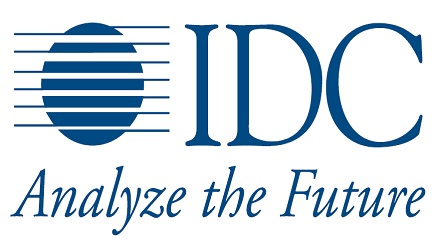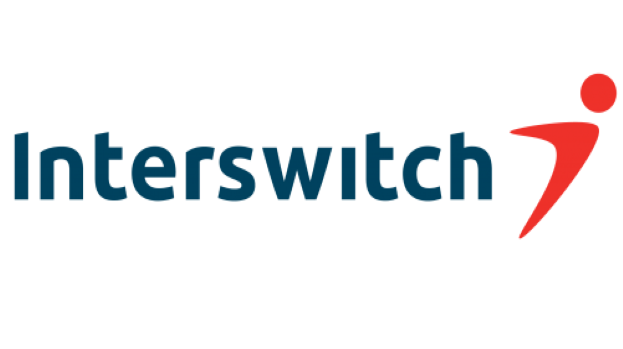E-Business
Securing Smart Digital Enterprise as Budget Constraints Begin to Bite

The results of a recent IT security survey of Middle East organizations conducted by International Data Corporation (IDC) show that the top three threats to enterprise security are infected USB drives, data theft by employees, and advanced persistent threats.
These threats all have one aspect in common – insider risk. And the fact that users do not realize they are bringing in infected devices is another major concern.
Such issues featured heavily on the agenda at IDC’s recent IT Security Roadshow in Bahrain, where more than 100 senior security professionals from the government, oil and gas, manufacturing, construction, and BFSI verticals – to name just a few – gathered to undertake an in-depth examination of the increasingly volatile forces shaping the prevailing threat landscape in Bahrain as new economic realities begin to bite.
“Advanced persistent threats can go undetected for long periods of time, which adds to the complexity of the challenge,” said Megha Kumar, senior research manager for software at IDC Middle East, Africa, and Turkey. “Increasing the levels of awareness and proactivity around security is critical for organizations across the GCC. Financial motivation continues to drive cybercrime activity in the region, although so-called ‘hacktivist’ incidents are compounding the situation with websites now also being defaced simply to drive a particular political agenda. The implications of such incidents are far reaching, not just from a financial perspective but also from a regulatory and reputational point of view.”
Security is critical not just for securing enterprise data but also as a major facilitator of the digital transformation process. With this in mind, speakers at IDC’s IT Security Roadshow in Bahrain explained that organizations must remain resilient in the face of increasingly challenging economic conditions and employ a proactive approach to security as they undertake their digital transformation initiatives.
“Budget constraints are likely to remain a challenge for the foreseeable future in Bahrain,” says Kumar. “But the security conundrum becomes even more challenging when organizations start downsizing their headcounts in a bid to free up much-needed resources. In such a scenario, the threat of insider risk is exacerbated as disgruntled employees leave the company, potentially taking sensitive corporate information with them. As such, data loss prevention, data access management, and governance are all major security factors that must be addressed in order to avert any unwanted drama.”
With all this in mind, IDC expects organizations in Bahrain to seek out IT solutions that help improve their cost and operational efficiencies.
And as they increasingly look to exploit innovative new business models and services, they will inevitably move into far more open, digitally-enabled ecosystems.
IDC believes that cybersecurity and privacy solutions will become one of the major technological drivers of successful digital transformation strategies, but businesses must first undertake a proper risk assessment to discover precisely where they can be compromised.
IDC’s annual IT Security Roadshow has also already visited Kuwait, Istanbul, Ankara, Jeddah, Riyadh, Doha, Lagos, and Abu Dhabi, and its tour of the Middle East, Africa, and Turkey is far from over as events are still to be held in Muscat, Amman, and, Johannesburg. For further details, please visit the dedicated IT Security Roadshow 2016 website. You can tweet about the events using the hashtag #IDCITSECURITY.
A wide range of leading technology vendors partnered with IDC’s ‘IT Security Roadshow 2016’ in Bahrain, including Palo Alto as Gold Partner; Airwatch by VMware, Check Point, Lumension (in association with Exclusive Networks) as Silver Partners; Arcon and Shavlik as Exhibit Partners; and the Technology and Business Society as ICT Partner.
E-Business
AfDB, UNDP Launch $10Bn AI Initiative for Africa

The African Development Bank Group (AfDB) and the United Nations Development Programme (UNDP) have launched an ambitious $10 billion project to support the adoption of Artificial Intelligence (AI) across the continent.

The 10 Billion Initiative intends to accelerate ethical AI adoption and inclusive digital economic growth in Africa.
The initiative follows the Nairobi AI Forum, which took place earlier this month in Kenya and brought together governments, private sector leaders, development partners, and tech innovators to define pathways for impactful AI adoption.
According to the organisations, the strategy is a co-designed collaboration between the Bank Group, UNDP, and commercial partners that aims to raise up to $10 billion by 2035.
The resources will be used to create up to 40 million new jobs across the continent by 2035, through targeted investments that provide the groundwork for AI and accelerate widespread adoption in everything from entrepreneurship and regional data infrastructure to policy frameworks and skill development.
Nicholas Williams, AfDB Group ICT operations division manager, commented: “As a leading multilateral development institution, the bank is leveraging its comparative advantage to ensure Africa is not left behind in the AI era.
“The AI 10 Billion Initiative paves the way for expanded partnerships and sustained investments that will accelerate AI entrepreneurship, strengthen data and infrastructure ecosystems, and support inclusive growth across the continent.”
E-Business
Firm Identifies RenEngine Loader Distributed Through Pirated Games and Software

Kaspersky Threat Research has revealed its analysis of RenEngine, a malware loader that has recently gained public attention. Kaspersky identified RenEngine samples as early as March 2025, with its solutions already protecting users from the threat at that time.

Beyond the cracked games highlighted in recent reports, Kaspersky researchers discovered that attackers created dozens of websites distributing RenEngine through pirated software, including graphics editors like CorelDRAW. This expands the known attack surface beyond the gaming community to anyone seeking unlicensed software.
Kaspersky has recorded incidents in Russia, Brazil, Turkey, Spain and Germany, among other countries. The distribution pattern indicates opportunistic attacks rather than targeted operations.
When Kaspersky first identified RenEngine, the loader was delivering the Lumma stealer. Current attacks distribute ACR Stealer as the final payload, and Vidar stealer has also been observed in some infection chains.
The campaign exploits modified versions of games built on the Ren’Py visual novel engine. When users launch infected installers, a fake loading screen appears while malicious scripts execute in the background. The scripts include sandbox detection capabilities and decrypt a payload that initiates a multi-stage infection chain using HijackLoader, a modular malware delivery tool.
“This threat extends beyond pirated games — attackers are using the same technique to distribute malware through cracked productivity software, which broadens the potential victim pool significantly,” said Pavel Sinenko, lead malware analyst at Kaspersky Threat Research. “Game archive formats vary by engine and title. If an engine doesn’t check the integrity of its resources, attackers can embed malware that executes the moment you click play.”
Kaspersky solutions detect RenEngine as Trojan.Python.Agent.nb and HEUR:Trojan.Python.Agent.gen. HijackLoader is detected as Trojan.Win32.Penguish and Trojan.Win32.DllHijacker.
E-Business
Interswitch Partners Abia to Digitise Public Hospitals

Interswitch, a technology company, through its health-tech subsidiary, Interswitch eClat, has taken a major step in advancing Nigeria’s public-sector health digitisation agenda following the conclusion of a high-level stakeholders’ engagement with the Abia State Government.

The engagement took place ahead of the phased deployment of eClinic, Interswitch eClat’s Electronic Medical Records platform, across public health facilities in the state, the firm stated in a statement on Friday.
The engagement, convened by the Abia State Ministry of Health in collaboration with Interswitch and held at the State’s Ministry of Health in Umuahia, brought together senior government officials, health administrators, Interswitch representatives, and key ecosystem stakeholders to align on the scope, implementation framework, and expected outcomes of the proposed eClinic deployment.
The initiative reflects a shared commitment to leveraging digital infrastructure to improve healthcare delivery, operational efficiency, and patient outcomes across Abia State’s public health system.
Discussions focused on deploying Interswitch’s eClinic solution in alignment with Abia State’s broader healthcare reform agenda under the current administration, particularly the transition from fragmented, paper-based systems to secure, interoperable digital platforms across public health facilities.
The proposed kick-off phase will span six public health facilities, including three primary healthcare centres, two secondary facilities, and one tertiary hospital, creating an end-to-end digital care pathway that strengthens patient referrals, supports continuity of care, and enables data-driven decision-making across all levels of service delivery.
The EMR solution is built to reduce patient waiting times, strengthen referral processes, and ensure the secure handling of both clinical and administrative data, supported by a hybrid infrastructure that enables local hosting with cloud-based backup.
Speaking at the engagement, Prof Enoch Uche, the Commissioner for Health, Abia State, described the initiative as a major milestone in the state’s healthcare transformation journey and highlighted the importance of private-sector collaboration in achieving sustainable impact.
“The Ministry of Health in Abia State is excited about the digitisation of health facilities, starting with Interswitch’s eClinic pilot phase involving three primary, two secondary, and one tertiary health centre. This initiative will enhance efficiency, accountability, and patient care by linking records across different levels of care.
“Global evidence shows that digital health improves access, reduces the cost of care, and maximises human resources while personalising services for our people. This partnership with Interswitch represents a key deliverable for this administration and aligns with the Governor’s vision for a modern, technology-driven health system,” he said.
During technical sessions led by Babatunde Fadeyi, Vice President, Health Ecosystem (Public Sector), Interswitch, stakeholders were taken through the core capabilities of Interswitch’s eClinic platform.
These include secure patient record management, ICD-11–compliant diagnosis coding, controlled data update protocols, and integrated billing and reporting tools designed to improve efficiency and accountability across health facilities.
Stakeholders were also briefed on the platform’s governance framework, risk mitigation approach, and phased implementation roadmap. Commenting on the engagement, Fadeyi reaffirmed Interswitch’s commitment to delivering measurable impact through technology-enabled healthcare systems.
“Abia State has demonstrated a strong commitment to innovation and system reform. The alignment of the state’s healthcare priorities with national health digitisation objectives creates a solid foundation for meaningful progress. Interswitch’s eClinic platform is designed to improve hospital operations by automating workflows, securing patient data, and providing healthcare managers with reliable insights to guide decisions.
“Beyond improving patient experience, it supports stronger revenue tracking, operational efficiency, and accountability. Our focus is to ensure the success of this pilot phase and deliver tangible improvements across productivity, service delivery, and patient satisfaction,” he said.
Also speaking at the engagement, Dr Ifeyinwa Blossom Uma-Kalu, the Permanent Secretary of the Ministry of Health, Abia State, highlighted the operational and clinical value of Interswitch’s eClinic initiative, particularly in strengthening referrals, improving revenue management, and expanding access to specialist care.
“This digitisation initiative will help us track our finances and internally generated revenue more accurately while reducing leakages. More importantly, it strengthens our referral system by allowing patient records to move seamlessly from primary to secondary and tertiary care.
“With a digital framework, healthcare workers in remote communities can access specialist support through telemedicine, helping to save lives and improve outcomes. This is a critical tool in our efforts to reduce maternal and infant mortality, and we are eager to see the outcomes of Interswitch’s eClinic,” she noted.
The engagement also addressed key success factors for the project, including power stability, user training, change management, and inter-agency collaboration, with both parties emphasising sustainability and scalability as the project progresses.

 General News3 days ago
General News3 days agoZinox Technologies and TD Africa Forge Strategic Partnership to Revolutionize African Tech Ecosystem

 Telecom3 days ago
Telecom3 days agoUwaje Pays Tribute to Leo Stan Ekeh @70

 E-Financial2 days ago
E-Financial2 days ago$214Bn Missing, Institutions Silent: Is Accountability Dead in Nigeria?

 Telecom2 days ago
Telecom2 days agoCyber Immunity Emerges as Shield for Nigerians Amid Rising Scams

 General News2 days ago
General News2 days agoNITDA, Abia Partner on Enterprise Architecture Reform

 E-Business2 days ago
E-Business2 days agoInterswitch Partners Abia to Digitise Public Hospitals

 E-Business2 days ago
E-Business2 days agoWIEG 2026 Summit Shifts to April 22-23 for Maximum Impact

 News1 day ago
News1 day agoNITDA Urges Stronger State Partnerships as Key to Digital Economy Goals @ South-South Stakeholders Forum














